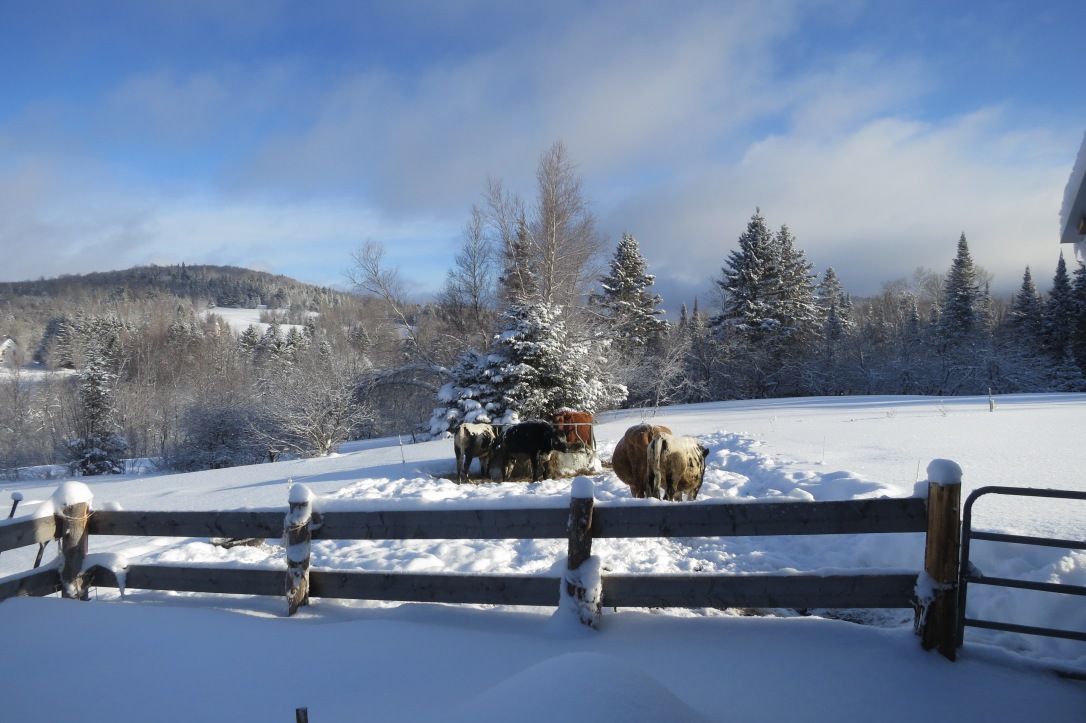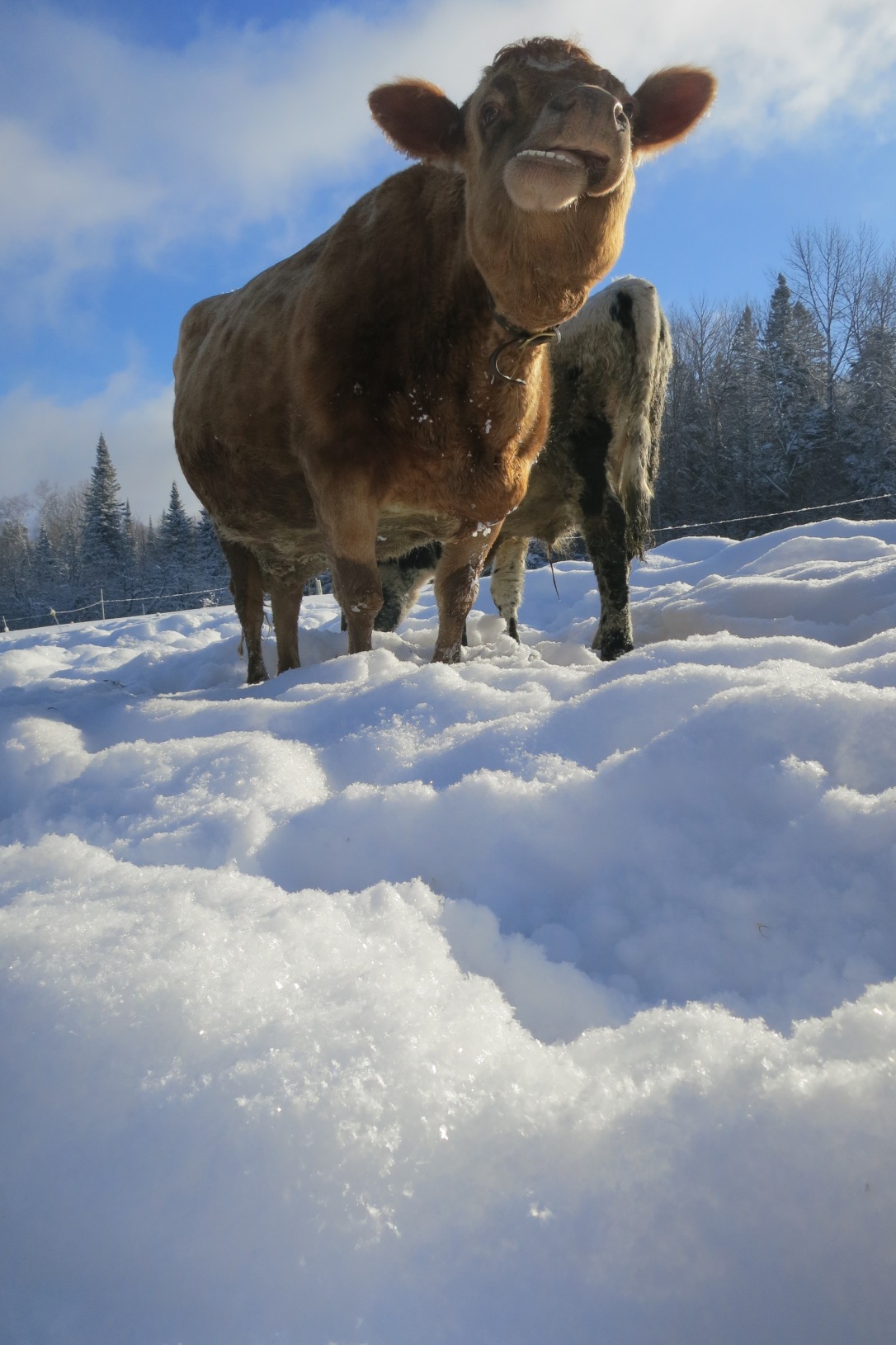
Rye, working a beaver hide
Five years after my last story, I was back on the Vineyard, this time in winter. A couple of the same friends I’d lived with that summer had an apartment, and it was cheap, and there was lots of good-paying work. Trevor and I were working for the same builder, restoring a massive old Victorian that overlooked the Atlantic. Place must’ve been worth… damn, I have no idea. Whatever number I throw out would probably be naively low, anyway. A lot of money, for sure.
This was a big step up from working for Ken. I was still the low man on the ladder, so to speak, but the ladder was a whole lot taller, if that makes any sense. I was responsible for most of the grunt work, but because there wasn’t a whole lot of grunt work, I got to partake of the finish work, and leveling the floors, and replacing clapboards and exterior trim, and so on. I no longer had the stupid-fast motorcycle, but I think I had another, or maybe I was between motorcycles. But I know I had a bicycle and I know I rode that a lot. A whole lot. Trevor and I would start work at 6:00 in the morning, work until our paid coffee break at 10:00, stuff our faces, and leave the job at 2:00 with a full eight-hour day behind us. I think I was up to $20/hr, which at that point in my life (and remember, this would’ve been the early 90’s), felt like a whole lot of money. Anyway, after work I’d climb on my bike and pedal all over the island.Yeah, it was winter, but winter on the Vineyard is pretty half-ass. I had me a Sony Walkman, one of those yellow ones that was supposed to be water and shock resistant, and I listened to that a lot. Appetite For Destruction had been out a few years, but I’d only just caught wind of it. That, and lots of Rush. Not sure what else, but probably something pretty awful.
So one morning Trevor and I are on the job, and it’s early – 6:30 or so – and this woman shows up to dig a ditch for the sprinkler system. It’s barely light out. It was February, and pretty chilly, maybe 40-degrees, and raining a bit, and generally just a shitshow. The ocean all gray and foreboding. The woman was riding a bicycle. She had a shovel and a mattock strapped to the frame of the bicycle. I didn’t have a girlfriend at the time, I actually don’t think I was even looking or cared much; I was into making money, riding my bicycle, and hanging out with my friends. Sure, I noticed attractive women; no doubt I made occasionally fumbling attempts to make myself seem attractive to them, but at that point in my life, it just wasn’t a focal point for me. Which in hindsight seems a little odd for a 21-year-old guy, but that’s just the way it was.
But this was something different for sure. I mean, this woman had ridden her bike a dozen miles in the rain, in the near-dark of early morning, in February, with a goddamned shovel and mattock, to dig a trench so some fool with more money than sense would be assured a green-enough lawn come the dry days of August. I was mighty intrigued, I was.
I flirted a bit, at least to the best of my ability, which wasn’t much. I remember being up on some scaffolding on the exterior of the house and there was some gloppy snow – maybe accumulated on the porch roof, or maybe on the scaffold planks themselves – and I remember throwing snowballs at her while she dug. Grade-school stuff. Real smooth operator.
I don’t recall much else from the job site; I think she finished the trench, went off to some other job, probably rode her bike to that one, too, lugging whatever tools were required. But I remember running into her in the book store in town – I used to go there quite a bit – and I asked if she wanted to go to my bosses wedding with me, which was coming right up. And she looked at me, and said: “Sure.”
And then she said: “What’s your name again?”
And a half-dozen years later, we got married ourselves.





 I worked the woods all of Saturday, racing the impending storm that will surely render my skid roads impassable. They’re near to that already; the snow has accumulated to impressive depths. In places it reaches to my thighs, and though the temperature never lifted out of the single digits, I sweated profusely as I wallowed between the tractor and the fated trees, leaning sharply forward against the resistance of the unspooling winch cable clenched in gloved hand, savoring the delicious awareness of my body at work, muscles soaked in pounding blood, pillows of lungs expanding with each breath right down into their pale wrinkled corners.
I worked the woods all of Saturday, racing the impending storm that will surely render my skid roads impassable. They’re near to that already; the snow has accumulated to impressive depths. In places it reaches to my thighs, and though the temperature never lifted out of the single digits, I sweated profusely as I wallowed between the tractor and the fated trees, leaning sharply forward against the resistance of the unspooling winch cable clenched in gloved hand, savoring the delicious awareness of my body at work, muscles soaked in pounding blood, pillows of lungs expanding with each breath right down into their pale wrinkled corners. I call this one “skiing through downtown.” Because that’s what I’m doing
I call this one “skiing through downtown.” Because that’s what I’m doing
